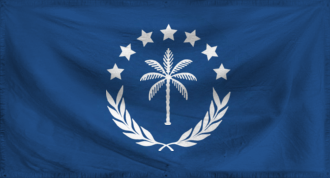A) How the leader is elected
In Corsitilia, we have a different way of electing. Two candidates who have to be in the elite class will do a debate and the most convincing person is chosen by the judge. While most people call this strange it makes very sense. There are some cases where Judges select someone they are close to but they have all been fired and disappeared.
B) Civil rights
Citizens are citizens. They work for the government so our supreme chancellor can go on vacations to 5 star hotels. Even though we have been criticised by many foreign leaders, we don't care. And if they do try to revolt against us, we wake them up at midnight, execute them in the back alley streets and get rid of the body. WAIT! CUT THAT PART OUT!
C) The environment
The Ministry of Statistics calculated that about 200,000 animals die each year and that each hour forests about the size of 4 football fields are cut down. There are some certain protected areas and species such as the Bvortiskeilifortyn National Park and the Mooneson Falcon. Recently, we have lifted the whaling ban and our economy has went up higher than ever
D) Crime
Due to poverty, many have turned to crime. While we have many police officers, there are too much crimes that they can respond to and half of them just laze around in the headquarters anyways. The best advice we can give is - Be careful. And if you think it's our fault you're wrong. It's the Ministries of Welfare and Education's.
E) Floods
In areas with frequent rainfall it's more likely there will be a flood. Since not many people have equipment to survive it, we make sure that in the case of one everyone should climb to rooftops. If the flood reaches the roof or your building falls down then too bad. A certain governor have pointed out that it's because of deforestation and that plants help absorb the water to prevent floods but that's unlogical.
F) Smuggling
In recent years, we have found many Corsitilians smuggling things to foreign nations and we are doing our best to prevent that from happening so. However, our airport security is just as pathetic as the police meaning National Guards must sometimes be deployed to replace them. But fear not as we will make sure it won't happen ever again.
G) Average age
The average age of death is very low in Corsitilia. By the time people turn 50 or 60, they are most likely nearing the end of their life. In fact, the current record is held by a Jan C. Helvertonica at the age of 89. Poor people are more likely to die before their 60s due to a lack in public healthcare. Ministry of Healthcare's fault.
H) Poverty
It is estimated that 74% of Corsitilia are in the lower class, 17% in middle class and 8% in upper class. Most people in the lower class work in factories and are paid 10 Dnirkos (about 2 Australian Dollars) per hour and earn approximately 33 Dnirkos every day (about 66 Australian Dollars). So if we do the maths, 33x365=12045. So the employed lower class earns about 12,045 Dnirkos (24,090 Australian Dollars) every year. And that brings us to our next topic.
I) Unemployment
With many jobs filled and not lots of options, most people are unemployed or in other words have no jobs. Because of this, most of the unemployed are homeless. The government has funded some money to help and built many shelters. Many have complained that the shelters are just as worse even though it gives money to the authorities.
J) Safety of Transportation
About 20 people die each day due to road accidents. Most are caused by
hose are some of the things that plague us until now. Of course we have more but they are too secretive to be revealed









